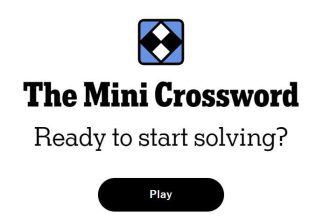Not long ago, I logged into LinkedIn and found that a freelance copywriter had tagged me on a poll he had written: “I want to be a solopreneur,” he wrote. “But I am afraid I am just doing it out of selfishness and greed. Give me your honest opinion (especially solopreneurs).”
I’ve always found it curious when people see running a one-person business (known in government lingo as a “nonemployer business”) as a sign of selfishness—or that they assign a moral weight to the size of a business’s payroll, or lack of one.
From what I have seen, job creation happens when there is too much work for one person—the owner of the business—to do. Not all businesses are lucky enough to find themselves in that situation, and even if they are, they may not have the stable cash flow needed to run payroll every month. There are 33.2 million small businesses in the U.S., but only 18.3% have paid employees, according to the U.S. Small Business Administration’s Office of Advocacy.
In the years since my book, The Million-Dollar, One-Person Business and more recently, Tiny Business, Big Money came out, I’ve heard from a number of people concerned that creating a business that did not create traditional jobs for others was somehow wrong.
Here are eight reasons I disagree.
1. One-person businesses pay the bills for millions of Americans. For many people, self-employment is an alternative to a traditional job—one that allows them to keep the lights on, food in the fridge and their car on the road. Running a one-person business allows them to earn a living with the flexibility to handle other responsibilities, like raising children or caring for elderly parents. In 2022, 63% of new business owners were searching for flexibility in their work, according to research by payroll provider Gusto. Side hustles are currently helping many people stay ahead of inflation, with Gusto’s research showing that 41% of owners started a business because they wanted to supplement their household income, up from 24% in 2021.
2. The one-person business is a vehicle for economic empowerment. Women are one of the fastest growing groups of business owners, responsible for creating 47% of new businesses in 2022, up from 29% before the pandemic, according to the data from Gusto. Black entrepreneurs made up 5% of new business owners, up from 3% in 2019, and Asian American Pacific Islander owners formed 14% of new businesses, up from 12% in 2019.
3. If you’re making a living (legally), you’re giving back. Once your business is profitable, you’ll pay taxes on the profits. Assuming that at least some of your tax money is well spent, those payments contribute to the common good.
4. The world needs businesses of all sizes. Most of us buy the products and services we need from businesses of every possible size, from the one-person bookkeeping shop and family-run bakery downtown to the Big Box chain store. They exist in an ecosystem—one that needs a variety of businesses to thrive. Like larger businesses, many one-person ventures rely on a network of vendors and suppliers, contributing to the economy when retaining them.
5. Most businesses start small. If no one launched a one-person business, there would be no five-person, 10-person, 100-person or thousand-person businesses. Relatively few businesses start out as employers.
6. How you treat people defines your business. One-person businesses aren’t inherently good or bad—it’s how they treat their customers, vendors, contractors and other people in their sphere that defines them. The same holds true for larger employers who run payroll.
7. Not every business has access to credit. Having access to credit is very important if you are going to cut paychecks in good times and bad. As an employer, you are obligated to run payroll on schedule, so taxes get paid on time to the state. And if a payment from a customer gets delayed, that can leave you scrambling. 39% of businesses globally say at least 30% of their overhead goes to covering payroll, according to research by Quickbooks. Many of the owners who opt to function as “nonemployers”—and to rely on contractors, automation and outsourcing are doing this to get things done without access to traditional small business credit.
8. Many people running one-person businesses might not be able to work otherwise. The structure of traditional jobs and factors such as discrimination and unconscious bias, have kept many people out of the labor market. For instance, 62.5 of people with disabilities are outside the labor force. A one-person business is open to all, and it allows people to structure their work for their unique situation. The National Disability Institute finds that there is a higher percentage of self-employment among people with disabilities in working-age people of all ages, compared to people without disabilities.
Startups and scaleups are an important part of our economy, but so are one-person businesses. And with tools like AI and ChatGPT expanding what one person can accomplish as an entrepreneur, it’s likely to become harder and harder to determine what size any business is when we make purchases from them. We need all of them to keep our economy vibrant, and with the number of one-person businesses continuing to grow, I hope we’ll see more champions for them in the future.
Read the full article here





